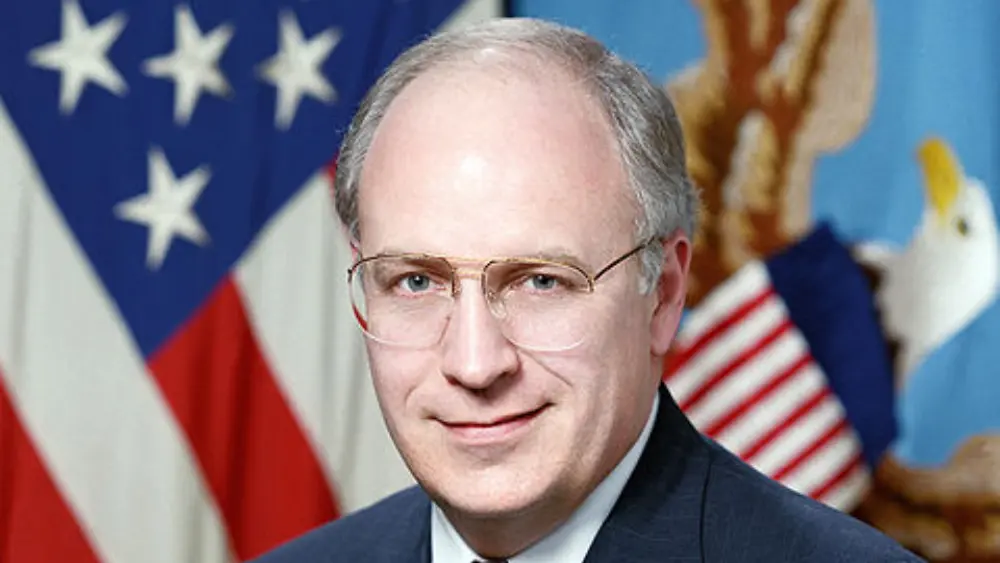Richard Bruce Cheney, commonly known as Dick Cheney, was born on January 30, 1941, in Lincoln, Nebraska. He is a veteran American politician and statesman whose career has profoundly influenced the political landscape of the United States for over half a century. Most notably, Cheney served as the 46th Vice President of the United States from 2001 to 2009 under President George W. Bush. As the oldest living former Vice President, Cheney’s career spans various government roles, the private sector, and the military, showcasing a diverse and impactful trajectory.
Early Life and Education
Dick Cheney’s early years were spent in Casper, Wyoming, where he was raised in a working-class family. His father was an oil field equipment salesman and truck driver, while his mother was a teacher. Growing up in the rugged, conservative environment of Wyoming instilled in Cheney a strong work ethic and a deep sense of responsibility and patriotism. From a young age, Cheney exhibited a keen interest in government and leadership, qualities that would shape his path in the decades ahead.
He attended Natrona County High School in Casper, where he was an active student and athlete. Upon graduating, Cheney enrolled at the University of Wyoming, where he pursued a Bachelor of Arts in political science. During his university years, Cheney became deeply involved in campus politics, demonstrating early leadership by serving as student body president. His education gave him a solid foundation in government, policy analysis, and political philosophy.
Following his undergraduate degree, Cheney continued his studies at the University of Wyoming College of Law, earning his Juris Doctor degree. The law school experience further honed his understanding of the legal system and provided him with critical skills for navigating the complex world of politics and governance. Cheney’s education was marked by a disciplined approach and a focus on public service, which set the tone for his future career.
Dick Cheney: Government Service and Early Political Career
Cheney’s entry into government service began shortly after law school, as he sought opportunities to engage directly in public policy and administration. One of his earliest roles was an internship in the congressional office of William A. Steiger, a Republican representative from Wisconsin. This experience offered Cheney a first-hand look at legislative processes and the intricacies of federal governance. He quickly learned how to work within the political system to advance policy objectives.
Cheney’s ambitions and talents soon led him to the Wisconsin state government, where he served as Chief of Staff to Governor Warren P. Knowles. Here, he developed valuable skills in managing government operations and building political coalitions. His success in Wisconsin paved the way for his entrance into the national political scene.
In 1971, Cheney moved to Washington, D.C., joining the Nixon administration as White House Deputy Assistant to the President. During this period, he worked closely on domestic and energy policy issues, gaining the trust of senior officials and building a reputation as a competent and effective government operative. His time in the Nixon administration also coincided with the Watergate scandal, a turbulent era that influenced his views on executive power and governance.
Congressional Tenure
In 1978, Cheney returned to Wyoming and launched a successful campaign for the U.S. House of Representatives. Representing Wyoming’s at-large congressional district, Cheney served five terms from 1979 to 1989. His decade-long tenure in Congress was marked by his growing expertise in defense, energy, and budgetary issues.
During his time in the House, Cheney was known for his no-nonsense approach and conservative fiscal policies. He was a member of several key committees, including the House Republican leadership, which helped him influence policy and legislation. Cheney’s pragmatic style earned him respect across party lines, and he became an advocate for strong national defense and energy independence.
During his time in Congress, Cheney worked on legislation concerning nuclear weapons, contributing to national security efforts. He also played a role in advancing the Strategic Defense Initiative, a program aimed at missile defense. Additionally, Cheney supported reforms in energy policy to promote efficiency and independence. These experiences on Capitol Hill established him as a serious policy expert, especially in defense and foreign affairs, which became central themes throughout his career.
Dick Cheney: Secretary of Defense under President George H.W. Bush
Cheney’s political career took a major leap forward when President George H.W. Bush nominated him as Secretary of Defense in 1989. Confirmed by the Senate, Cheney became the 17th Secretary of Defense, overseeing the Department of Defense during a critical transitional period marked by the end of the Cold War.
As Secretary of Defense, Cheney had to navigate the complexities of a changing world order. The Soviet Union was collapsing, and the U.S. military was adjusting its strategic priorities accordingly. Cheney advocated for maintaining a strong, technologically advanced military while pushing for a “peace dividend” to reduce defense spending without compromising national security.
One of the defining moments of his tenure was the leadership role he played during the Persian Gulf War (1990-1991). When Iraq, under Saddam Hussein, invaded Kuwait, Cheney was instrumental in coordinating the massive multinational coalition response. His experience and decisiveness were crucial in guiding the military planning for Operation Desert Storm. The operation successfully liberated Kuwait and showcased the strength of American military power.
Cheney also worked to modernize the military, emphasizing new technologies, advanced weaponry, and streamlined command structures. His tenure ended in 1993, but his impact on defense policy and military readiness was widely acknowledged and respected.
The Private Sector Interlude
After leaving government service, Cheney transitioned to the private sector, where he applied his skills and knowledge in influential roles. He served as CEO of Halliburton Company, a major oilfield services corporation, from 1995 to 2000. Cheney’s leadership at Halliburton was marked by expansion and increased profitability. However, it later became a point of controversy during his vice presidency due to government contracts awarded during the Iraq War.
Cheney’s time in the private sector broadened his experience with corporate governance, international business, and energy markets. This experience would prove relevant in his later political roles.
Vice Presidency under President George W. Bush (2001–2009)
Dick Cheney’s most visible and consequential role was as Vice President of the United States under President George W. Bush. Selected as Bush’s running mate in the 2000 presidential election, Cheney was regarded as a seasoned and powerful partner, known for his policy expertise and steady hand.
Throughout his two terms as Vice President, Cheney wielded unprecedented influence within the executive branch. Unlike many previous vice presidents, Cheney was deeply involved in national security, foreign policy, and domestic affairs. His role was especially prominent following the September 11, 2001 terrorist attacks, when the Bush administration launched the global War on Terror.
Cheney was a strong proponent of expanding executive power to protect the nation, often advocating for aggressive counterterrorism measures. He supported the controversial Patriot Act, enhanced interrogation techniques, and the use of military force in Afghanistan and Iraq. His close advisory relationship with President Bush meant that Cheney was often the architect or key supporter of many pivotal decisions during this period.
One of the most contentious aspects of Cheney’s vice presidency was his advocacy for the 2003 invasion of Iraq. He argued that Saddam Hussein possessed weapons of mass destruction and posed a direct threat to U.S. security. The subsequent war and occupation proved to be long, complex, and divisive, with significant political and humanitarian consequences.

Dick Cheney: Post-Vice Presidency and Health Challenges
After leaving office in January 2009, Cheney remained active in political and public discourse. He published a memoir titled In My Time: A Personal and Political Memoir, which provided his perspective on his career, decisions, and controversies. Cheney also frequently appeared in interviews and at speaking engagements, sharing his views on national security and foreign policy.
Cheney’s health became a major focus during his post-vice presidency years. He had a long history of heart problems, undergoing five heart attacks and multiple surgeries over several decades. In 2012, he received a heart transplant, a testament to both his resilience and advances in medical technology.
Despite health setbacks, Cheney continued to participate in political discussions and remained a respected, if polarizing, voice within the Republican Party.
Legacy and Influence
Dick Cheney’s legacy is complex and multifaceted. He is credited with shaping modern American defense and national security policy, especially in the post-Cold War and post-9/11 eras. His emphasis on a strong military, decisive leadership, and assertive foreign policy influenced many aspects of U.S. governance.
At the same time, Cheney is a polarizing figure. His support for expanded executive powers, aggressive anti-terrorism policies, and the Iraq War drew sharp criticism from opponents who saw his tenure as emblematic of government overreach and contentious foreign interventions.
Regardless of perspective, Cheney’s impact on American politics is undeniable. He helped redefine the role of the vice presidency, transforming it into a position of substantive influence. Cheney remains a key figure in understanding U.S. political and military history during the late 20th and early 21st centuries.




